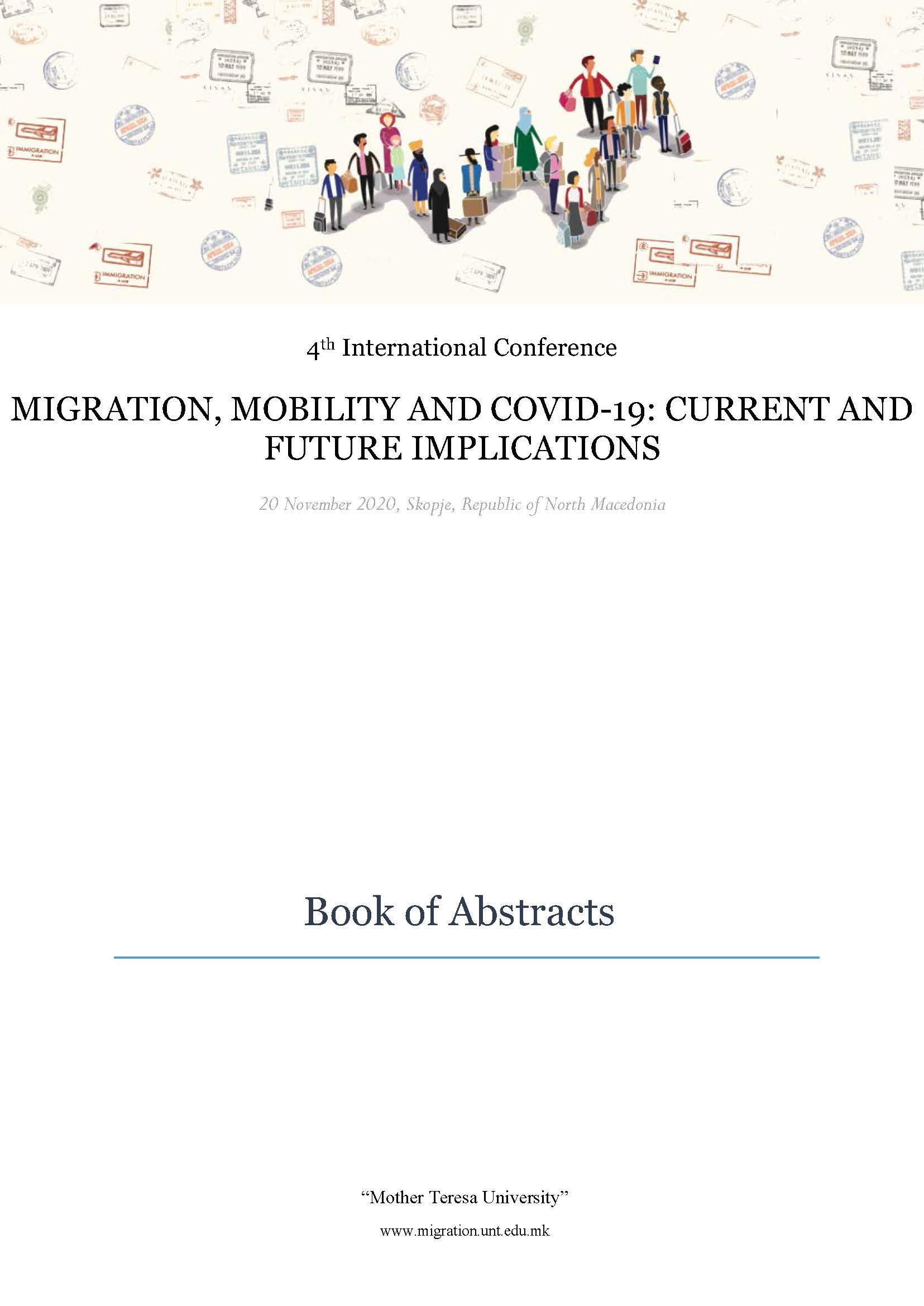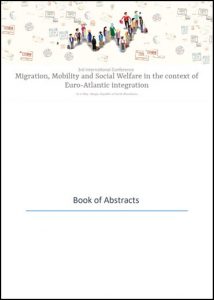Home
9th International Migration Conference - Call for Papers
The Migration in Motion: Trends, Transformations, and Governance conference, representsa crucial platform for advancing understanding and dialogue on one of the most pressing global issues of our time. Migration affects economic development, social cohesion, human rights, and political stability across regions, yet its complexities are often underexplored in interdisciplinary forums. By bringing together scholars, practitioners, policymakers, and civil society actors from around the world, this conference provides a unique opportunity to share research, exchange best practices, and foster collaboration across borders. With a special focus on Southeast Europe and the Balkans, the event also highlights regional experiences while situating them within global migration trends, making it an essential venue for shaping evidence-based policies, innovative solutions, and inclusive approaches to migration governance.
We welcome papers, panels, and roundtables addressing (but not limited to) the following topics:
1. Global Migration Trends
o Patterns of international migration, mobility, and demographic shifts.
o Comparative perspectives on migration flows across regions.
2. Forced Migration and Displacement
o Refugees, asylum seekers, and internally displaced populations.
o Humanitarian response, protection mechanisms, and policy challenges.
3. Labor Migration and Economic Impacts
o Migration and labor markets, remittances, and development.
o Brain drain, skills mobility, and opportunities for sustainable growth.
4. Integration, Identity, and Social Cohesion
o Social, cultural, and political integration of migrants.
o Migration narratives, inclusion policies, and combating xenophobia.
5. Migration Governance and Policy
o International, regional, and local policy frameworks.
o Role of international organizations, governments, and civil society.
6. Health, Education, and Social Wellbeing
o Access to healthcare, mental health support, and education for migrants.
o Children, adolescents, and family and social policy in migration contexts.
7. Media and Migration
o Role of news media, social media, and journalism in shaping migration narratives.
o Representation of migrants in public discourse and policymaking.
8. Arts and Migration
o Literature, film, visual arts, and cultural production reflecting migration experiences.
o Creative practices as tools for dialogue, memory, and social cohesion.
9. Social Movements and Migration
o Advocacy, activism, and grassroots movements supporting migrants’ rights.
o Role of civil society networks in influencing migration policies.
10. Climate Change and Environmental Migration
o How climate change, natural disasters, and environmental degradation drive displacement.
o Policy responses and adaptation strategies for climate migrants.
o Intersection with urban planning, resilience, and social equity.
11. Regional and Context-Specific Studies
o Migration dynamics in Southeast Europe, the Balkans, and neighboring regions.
o Comparative studies linking local experiences to global migration trends.
12. Innovative Approaches and Future Directions
o Digital technologies, diaspora engagement, and transnational networks.
o Interdisciplinary research, predictive modeling, and emerging trends.
Publication possibilities: Selected papers from the conference will be published at one of
the university’s journals: South East European Journal of Sustainable Development;
Journal of Modern Trends in Social Sciences.
For more information about IMC, visit migration.unt.edu.mk
Contact us at: migration@unt.edu.mk
Book of abstracts – Migration Conference 2023
Book-of-abstracts-Migration-Conference-2023
7th International Migration Conference on
“Migration trends, challenges, priorities and new policy pathways”
19 May 2023, Skopje, North Macedonia
Call for papers
Mother Teresa University is hosting the 7th edition of the international migration conference “Migration trends, challenges, priorities and new policy pathways” with the purpose of providing an original contribution in the field of migration. Scientific knowledge is vital for guiding political decision making in today’s world continuously challenged by demographic, climate and technological changes, the impact of the COVID-19 pandemic, economic downturns and the mass forced migration following conflicts such as the current war in Ukraine. Research and academic debate are much needed so that policies and regulation will not be used to react to novel circumstances, but rather to anticipate them. The conference aims at gathering a broad range of university researchers, policy makers, and civil society and mass media representatives to discuss current challenges, policy priorities and new pathways in policy-making related to the phenomenon of migration. The theme is intentionally broad to accommodate for scholarship on a plethora of topics and generate inter-disciplinary dialogue. Therefore, we invite abstracts from researchers and practitioners at all levels and disciplinary perspectives including, but not limited to: economics, law, cultural studies, anthropology, geography, psychology, medicine, political science, history, journalism. Participants are invited to submit abstracts within a broad array of theoretical and epistemological approaches, with varying contexts, motives and experiences of migration and its consequences on the individual, institutional, or societal levels.
Papers to be presented in the conference should focus on one or more of the following topics, but not limited to:
- Demographic trends on migration movements
- Geopolitics, migration and new political pathways
- Human rights and migration
- Forced migration
- Policy and migration
- Migration, remittances and development
- Highly skilled migration
- Reversing the brain drain – national and regional initiatives
- Gender and migration
- Brain drain in the Western Balkans – is there a policy remedy for brain drain in the region?
- The role of CSOs in addressing migration issues
- Engaging the diaspora through success stories and best practices
- Migration, media and the public
- Immigration, integration and citizenship
- Migration, environmental and climate change
- Human migration from a historical perspective
IMPORTANT DATES:
Deadline for abstract submission: 30, April 2023
Notification of selection: 08, May 2023
Conference date: 19, May 2023
The applicants are invited to submit abstracts in English language. The abstract along with author names, institutional affiliation, and contact details must be submitted to the following email: migration@unt.edu.mk

After the agreed solution of the name dispute of our country and expected mutely acceptable solution between the Republic of Kosovo and Serbia, it appears that the region is on a way to overcome political stalemate thus opening a real prospect for region’s integration into the EU and NATO. Unfortunately, this positive trend is also accompanied by a phenomenon such as migration that produces serious demographic consequences that ultimately have an impact on the economy as well as on political stability and security.
This conference aim is to address the phenomenon of migration and integration as a parallel process, as a chance and as a handicap. Such an approach is self-imposing if we consider that the expectations are that the integration has positive effects on the economic development, on one hand, on the other hand, the emigration of a part of the population, most of them young, educated people, will have unprecedented negative consequences in many segments, such as in the sphere of economy as well as demography.
The region is already and will be more and more comforted with emigration coming from countries outside the continent, mostly through illegal channels which present a security threat.
The conference will welcome all the works related to this subject, as well as the interdisciplinary nature, which can help to deepen the theoretical and practical knowledge of this phenomenon, which can be a way of decision-making authority in the methods and approach to successfully manage this issue.



